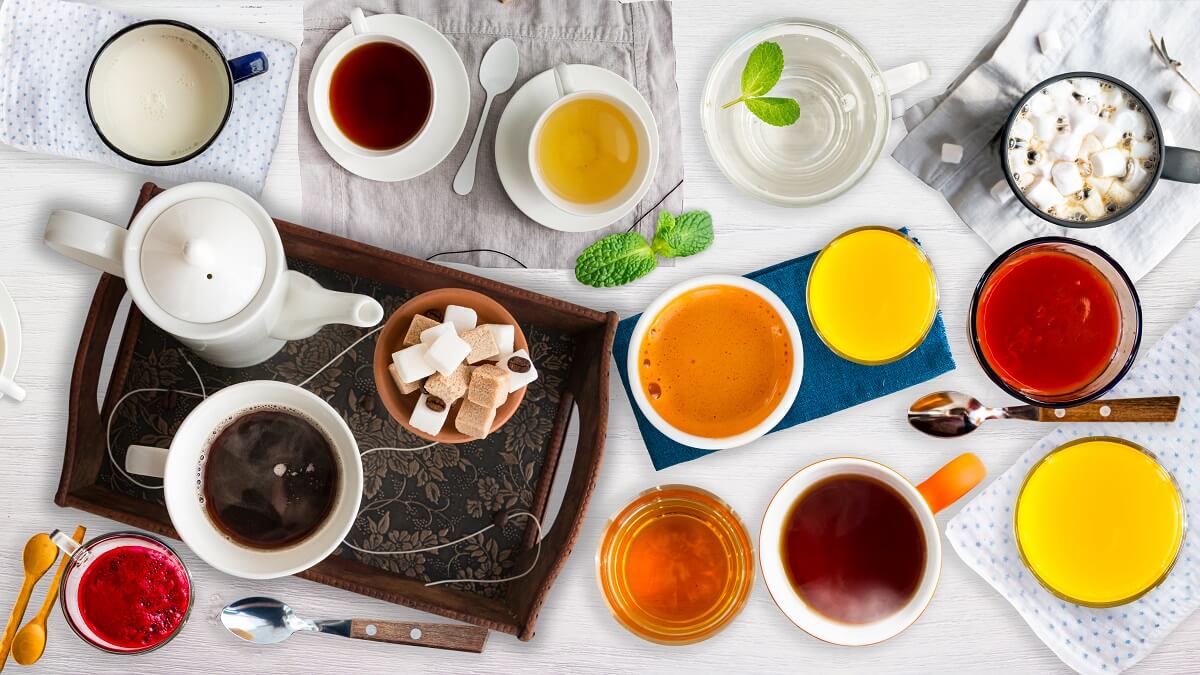The idea of sipping a drink that boosts your brainpower probably sounds pretty appealing. So it’s not surprising that the use of nootropics or ‘brain enhancers’ are on the rise.
The term nootropics refers to any natural or synthetic substance that may have a positive impact on mental skills. In general, though, nootropics fall into three general categories: dietary supplements, synthetic compounds and prescription drugs.
While hundreds of nootropic supplements are available as pills and powders, several beverages contain natural nootropic compounds. Another plus is that these drinks often contain other ingredients such as antioxidants or probiotics that may also support brain function.
Here are nine juices and drinks that may boost your brain health.
Coffee
Coffee is probably the most widely consumed nootropic beverage. The caffeine in coffee provides most of the brain benefits but it contains other compounds such as chlorogenic acid, which is a powerful antioxidant.
One review noted that caffeine may improve focus, alertness, reaction time, and memory in doses of 40–300mg, which is the equivalent of about 0.5–3 cups (120–720ml) of coffee.
A short animal study found that a dose equivalent to five cups (1.2L) of coffee daily helped to prevent and treat Alzheimer’s, but more studies are needed in this area.
Green tea
Although green tea contains some caffeine, the content is much lower than coffee. However, it does boast two popular nootropic compounds – l-theanine and epigallocatechin gallate (EGCG).
L-theanine is thought to help with relaxation on its own but when combined with caffeine it offers an attention boost. EGCG acts as a potent antioxidant that may protect against cellular damage caused by free radicals.
Research also suggests that catechins such as EGCG may reduce inflammation and prevent certain chronic conditions, including heart disease, diabetes, and some cancers.
There’s also evidence that green tea improves focus, memory and attention.
Kombucha
This tasty drink is made from green or black tea and usually has some fruit or botanicals added for extra flavour. It has been consumed for centuries for its health benefits and is now widely available at many supermarkets. You can also make your own at home.
Research posted to the Journal of Chemistry notes that the probiotics and antioxidants in kombucha may have a number of therapeutic benefits, such as helping support a healthy gut microbiome, as well as supporting other organs and body systems such as the liver, heart, and nervous system.
Theoretically, improved gut health may boost brain function via the gut-brain axis – a two-way line of communication between your gut and brain.
Berry juice or smoothie
Blended, juiced, whole, in a pie … berries are brain food whatever way you consume them. They’re typically high in antioxidants that protect your cells from damage, just watch out for store-bought juices as they can be high in sugar.
Blueberries in particular are rich in polyphenol plant compounds that may provide brain-boosting benefits. The antioxidants that provide the blueish-purple hue, anthocyanins, are thought to be responsible.
One review found the strongest positive effect of blueberries to be an improved short- and long-term memory, but some studies have reported no positive brain effects from blueberry intake.
Green juice or smoothie
We all know how important it is to consume leafy green vegies, but you don’t need to have them in a salad to reap the benefits.
Spinach, kale, and collard greens are rich in brain-friendly nutrients such as folate and lutein. Green drinks are also usually loaded with vitamins A and C.
Turmeric latte
When it comes to the medical benefits of herbs and spices, few, if any, have attracted as much attention as turmeric. It contains the antioxidant curcumin, which may increase your body’s production of brain-derived neurotrophic factor (BDNF).
Low BDNF is associated with mental deficits and neurological disorders, so raising BDNF levels may improve brain function.
Beetroot juice
Beetroot juice is rich in dietary nitrates and betalains, both of which are associated with a lower risk of heart disease and other chronic diseases.
According to a 2011 study, nitrates may help increase blood flow to the brain in older people and help slow cognitive decline.
Hot cocoa
Cocoa is rich in flavanols, plant-based substances that help improve attention, processing speed, and memory.
One study showed the brains of healthy adults recovered faster from a mild vascular challenge and performed better on complex tests if the participants consumed cocoa flavanols beforehand.
In the study, 14 of 18 participants saw these improvements after ingesting the flavanols.
I know this is good news, but try to stick to dark chocolate, which has more flavanols than milk or white. And don’t overdo it.
Lion’s mane mushroom tea
These large white fungi are aptly named – the mushroom looks almost furry when it is fully grown.
Lion’s mane is high in two compounds that support brain cell growth: hericenones and erinacines.
One study of older adults with mild cognitive impairment found that consuming 3g of powdered lion’s mane mushroom daily for four months significantly improved mental functioning, but these benefits disappeared when supplementation stopped.
You can buy lion’s mane as a powder and stir it into hot water to make a tea, but they’re also delicious pan-fried with a little butter and garlic.
What do you think of nootropics and brain-boosting beverages? Do you drink any of these for the benefits listed or are you waiting for more research? Share your thoughts in the comments section below.
Also read: Can certain foods make you smarter?
Disclaimer: This article contains general information about health issues and is not advice. For health advice, consult your medical practitioner.

